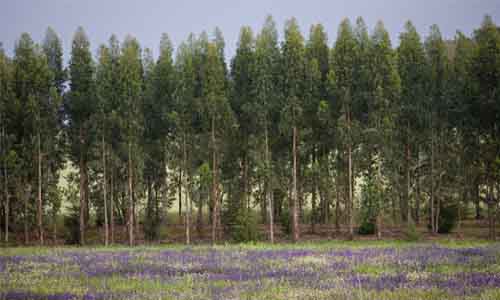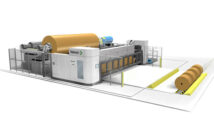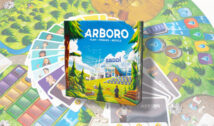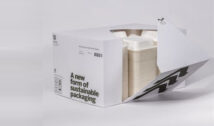
A survey conducted by the Portuguese University of Beira Interior (UBI), with the support of ROOT – Research Institute of Forest and Paper, proves that the Eucalyptus globulus fibres are more recyclable. The results were published in the Tappi Journal, an internationally recognized technical publication for more than 60 years, thus confirming the conclusions reached by the Tokyo University of Agriculture and Technology in 2001.
The survey, whose results have now been published in the Tappi Journal highlights the greater recyclability of Eucalyptus globulus fibres used in the unbleached pulp produced by The Navigator Company at the Aveiro Industrial Complex, as well as its excellent suitability to produce packaging paper. The tests performed show that the Portuguese eucalyptus fibres can withstand at least five times more recycling cycles than fibres of other species and without losing high-performance characteristics.
This is a particularly important feature in a circular economy context, thus meeting a more resilient economic model by enabling a more sustainable use of resources, which can thus be used several times in the production process. But this is also a differentiating factor for the recycling industry, in light of the fact that the use of Eucalyptus globulus fibres helps ensure a more suitable raw material to generate higher quality products even after undergoing several recycling cycles.
To achieve these results, the study “Recycling performance of softwood and hardwood unbleached kraft pulps for packaging papers“, available in the Tappi Journal, compared the Eucalyptus globulus unbleached short fibre pulp with the unbleached long fibre pulp (from Pinus sylvestris) of a Nordic competitor, used in the production of packaging papers.
After undergoing short-span compression tests (SCT) – tests that are a good indicator of both the strength and performance of a cardboard box, for example – the sheets produced with unbleached eucalyptus pulp preserved their key functional properties and were suitable for use in packaging paper after ten recycling cycles. On the contrary, the sheets obtained from unbleached long fibre pulp drastically lost that ability after the second recycling cycle, and were suitable to produce packaging paper only a they were less resistant and so therefore of lower quality.
The methodology and results obtained with the support of Aalto University, Finland, were submitted and accepted for publication in the February edition of Tappi Journal, a reference in the scientific world in the publication of the latest and most relevant research on forest products and their industries.
In the context of the studies carried out by UBI and ROOT, a comparison was also made between two high-performance unbleached cellulose pulps, and the conclusions were that unbleached Eucalyptus globulus pulp had an advantage over unbleached Eucalyptus urograndis pulp (a dominant species in Brazil) for the production of packaging paper when the fibre is subject to several recycling cycles. Soon, a new scientific paper with these results will also be submitted for publication in an international journal.
The first pulp was produced 66 years ago in Cacia
The industrial success of Eucalyptus globulus has been acknowledged since 1957 when a group of pioneers became the first in the world to produce on an industrial scale pulp for the market using the kraft process or the sulfate process (chemical separation of wood fibres using sodium sulfate in alkaline medium) – the main production process of cellulosic pulps worldwide -, from this species at the Aveiro Factory in Cacia.
This was the starting point of a journey that made this Company one of the world’s largest producers of globulus eucalyptus white pulp and printing and writing paper. Currently, Navigator ranks first at the European level and 5th worldwide in the production of eucalyptus pulp from certified forests planted exclusively for this purpose, presenting a production capacity of 1.6 million tons in the plants of Setúbal, Figueira da Foz and Aveiro.
In addition to pulp and paper, the traditional process of producing pulp from eucalyptus globulus currently generates other valuable by-products, thus proving that innovation and sustainability are two fundamental values of The Navigator Company since it was established. Factories are now becoming biorefineries with the capacity to develop new sustainable, natural, recyclable, biodegradable products and solutions, substitutes for fossil origin products, from biocomposites to bioactive products and scents from forest biomass.
This commitment to innovation and sustainability is reflected in the Company’s 2030 Agenda, which aims to “Create Value with Accountability”, as well as in its corporate purpose, because for Navigator “it is the people, their quality of life and the future of the planet that inspire and move us”.

































